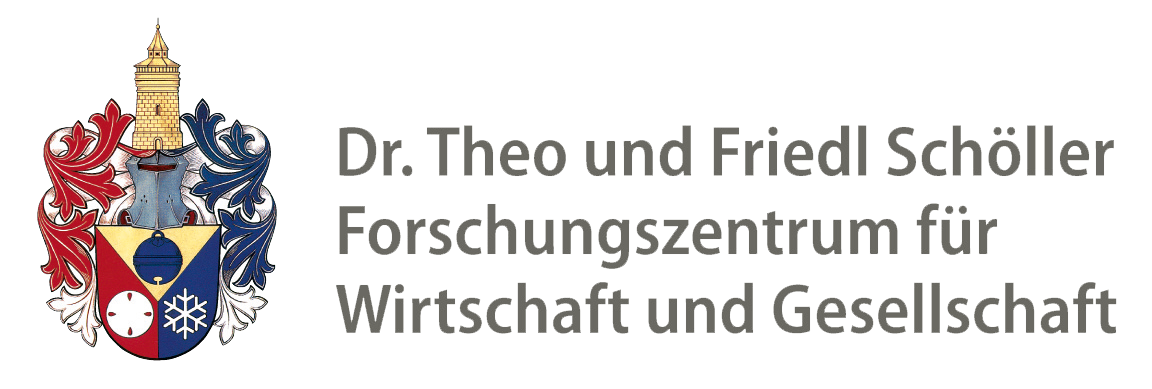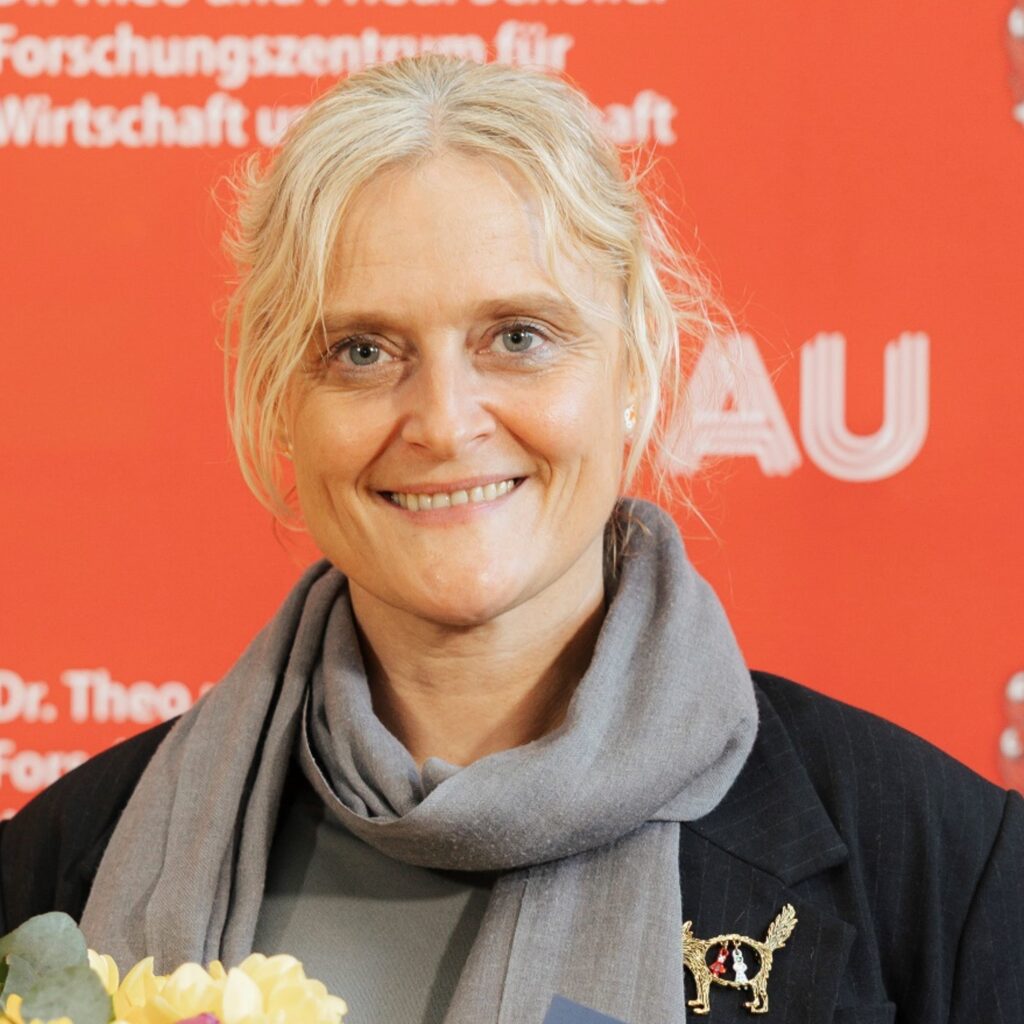
Marion Grether (Honorary Fellow)
Marion Grether was born in Kiel on February 13, 1973.
After graduating from high school, she studied art history, classical archaeology, Christian archaeology, and Byzantine art history at the University of Greifswald from 1993, graduating with a Master of Arts. From 2002, she worked as a researcher at the Göttingen Academy of Sciences. From October 2007, she was as a research assistant at the Emsland Museum in Lingen, where she trained as a Specialist for Museum Documentation and Cultural Management as part of the MUSEALOG project.
In June 2008, she moved to the Museum for Communication in Berlin, where she worked as a research assistant in the project management of temporary exhibitions until the end of 2012. In early 2013, she succeeded Dr. Stefan Kley as director of the Museum of Communication in Nuremberg.
Since March 2020, she has been the Director of the Deutsches Museum Nuremberg – Museum of the Future, which officially opened on September 17, 2021.
She is deputy spokesperson for the German Museums Association’s working group on technical history museums. She is a member of the Advisory Board of FAU Erlangen-Nürnberg. Since 2020, she has been a member of Nuremberg City Council for the parliamentary group of CSU (Christian Social Union in Bavaria). She is a member of Rotary Sigena Nuremberg.
In October 2024, she was elected church council of the Protestant parishes of St. Sebald and St. Egidien Nuremberg. Furthermore, she was appointed to the University Council of Technische Hochschule Nürnberg Georg Simon Ohm’s Institute of Technology in November 2024.
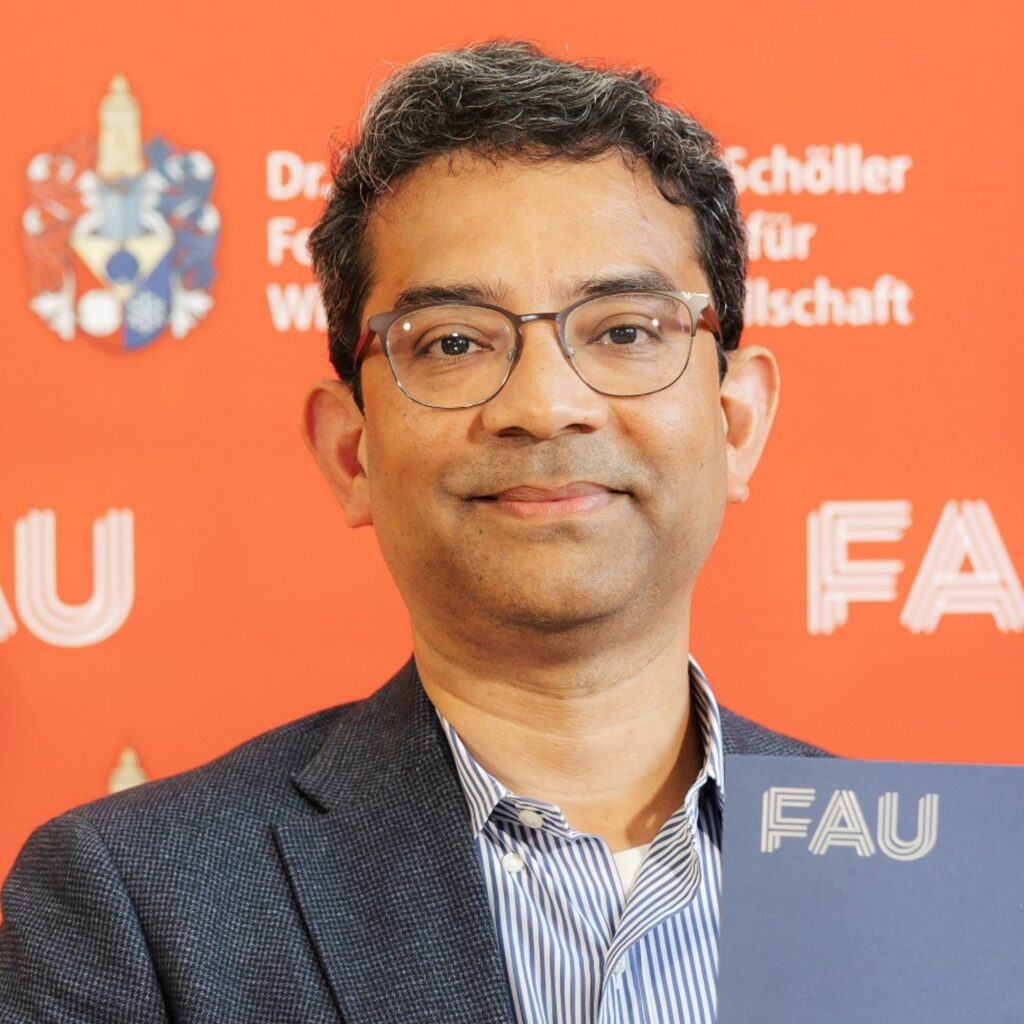
Prof. Prithwiraj Choudhury, PhD (Senior Fellow)
Prithwiraj (Raj) Choudhury is the Lumry Family Associate Professor at the Harvard Business School. He was an Assistant Professor at the Wharton School of the University of Pennsylvania prior to joining Harvard University. He earned his Doctorate from Harvard, has a bachelor’s degree in computer science from the Indian Institute of Technology Kharagpur, and an MBA from the Indian Institute of Management Calcutta. Prior to academia, he worked at McKinsey & Company, Microsoft and IBM. In 2023, Forbes included him in the Future of Work-50 list. He is currently an Associate Editor at Management Science.
His research focuses on the Future of Work, especially the changing Geography of Work; management practices that support hybrid work, remote work, and work from anywhere (WFA); how companies, communities, and countries are competing for remote workers; and how AI, automation and digital twins can help both desk workers and deskless workers work from anywhere.
His research has been published in leading academic journals such as Management Science, Organization Science, Strategic Management Journal, Journal of International Business Studies, The Review of Financial Studies, The Review of Economics and Statistics, Journal of Development Economics, Harvard Business Review. He is the author of the book “The World is Your Office” and has been cited in BBC, CNBC, New York Times, The Wall Street Journal, The Washington Post, Financial Times, Freakonomics, among other outlets.
Digital Twins: How AI and Automation Is Charting the Future of Work for Deskless and Semi-desk Workers
The Future of Work and work arrangements are experiencing a transformative moment given the advance of Generative Artificial Intelligence (AI), Remote Work and Automation. Prior research has mostly studied the effects of flexible work arrangements for desk-based (“white collar”) workers.
It is however imperative to study the effects of flexible work arrangements for deskless or semi-desk (“blue collar”) workers, especially whether women in deskless and semi-desk jobs experience positive gains in productivity and career progression from enhanced flexibility.
This research project will employ surveys, choice-experiments and qualitative case studies to study the effects of “Digital Twins”, technology that combines AI, automation, sensors and the cloud, on productivity, inclusive hiring, skilling, work-life balance, and the geographic distribution of workers, in deskless and semi-desk roles. The project will conduct surveys and develop case studies across one of two specific contexts in Germany: manufacturing, or healthcare.
The research project will also shed new light on the theory of the multinational firm in the era of work-from-anywhere and digital work.
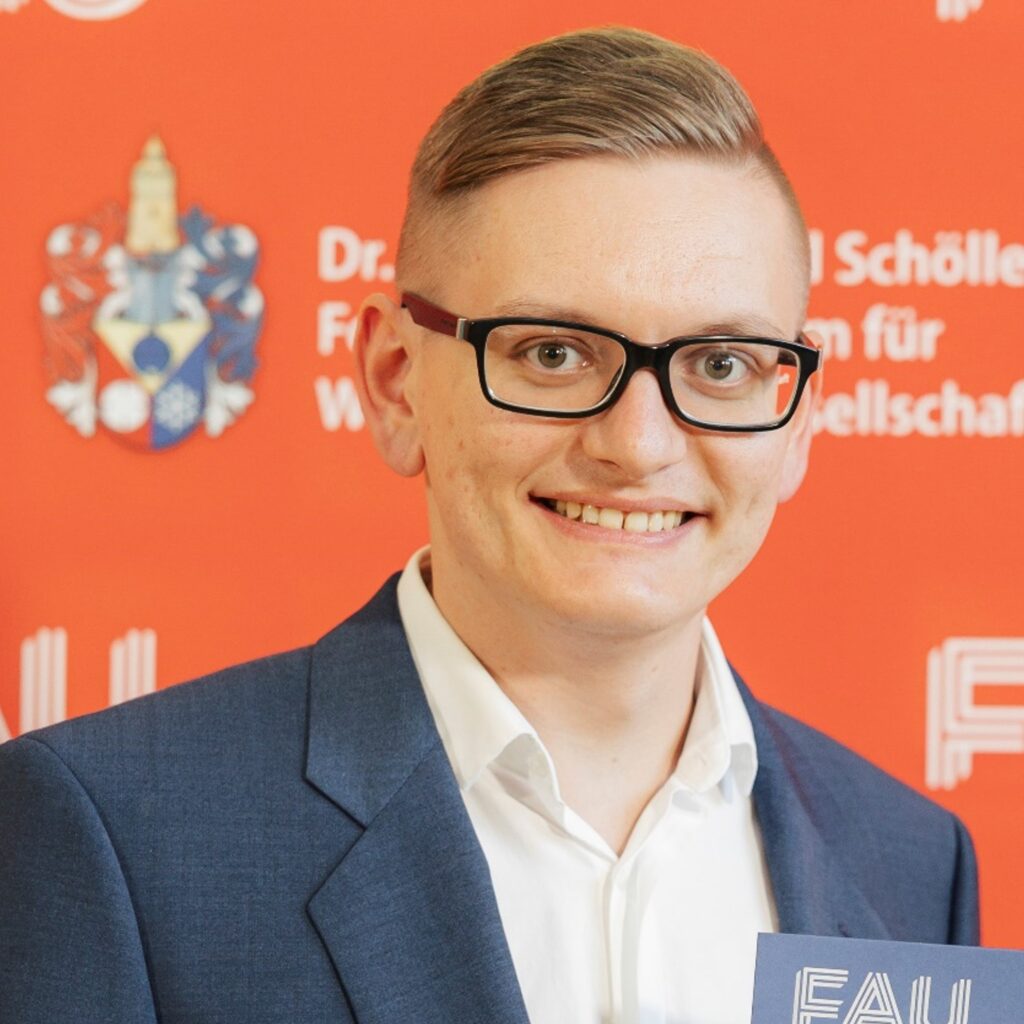
Dr. Stefan Arnold (Fellow)
Stefan Arnold is a postdoctoral researcher at the Chair of IT-Management. He studied business informatics and International Information Systems Management at the FAU Erlangen-Nürnberg and the Otto-Friedrich-University Bamberg and received his doctoral degree from FAU Erlangen-Nürnberg in 2023. His research focuses on the intricate interplay between the technological innovation of large language models and their far-reaching societal implications. To support and expand his research, he regularly acquires competitive funding from governmental and industrial sources. He frequently presents his findings at international conferences.
The Art of Conversation: Language Use and Best Practices for an Effective Interaction With Conversational Agents
Conversational Agents, powered by Large Language Models, have become indispensable tools for personal and professional tasks. However, their effectiveness hinges not only on the ability of interlocutors to communicate with linguistic precision and pragmatic adequacy, but also on their capacity to sustain an engaging dialogue. This includes aspects such as the use of linguistics devices to ensure logical conversational flow or the appropriate expression of empathy. The aim of the research project is to derive best practices based on real-world conversational interactions to promote accessibility and acceptance across broader segments of society.
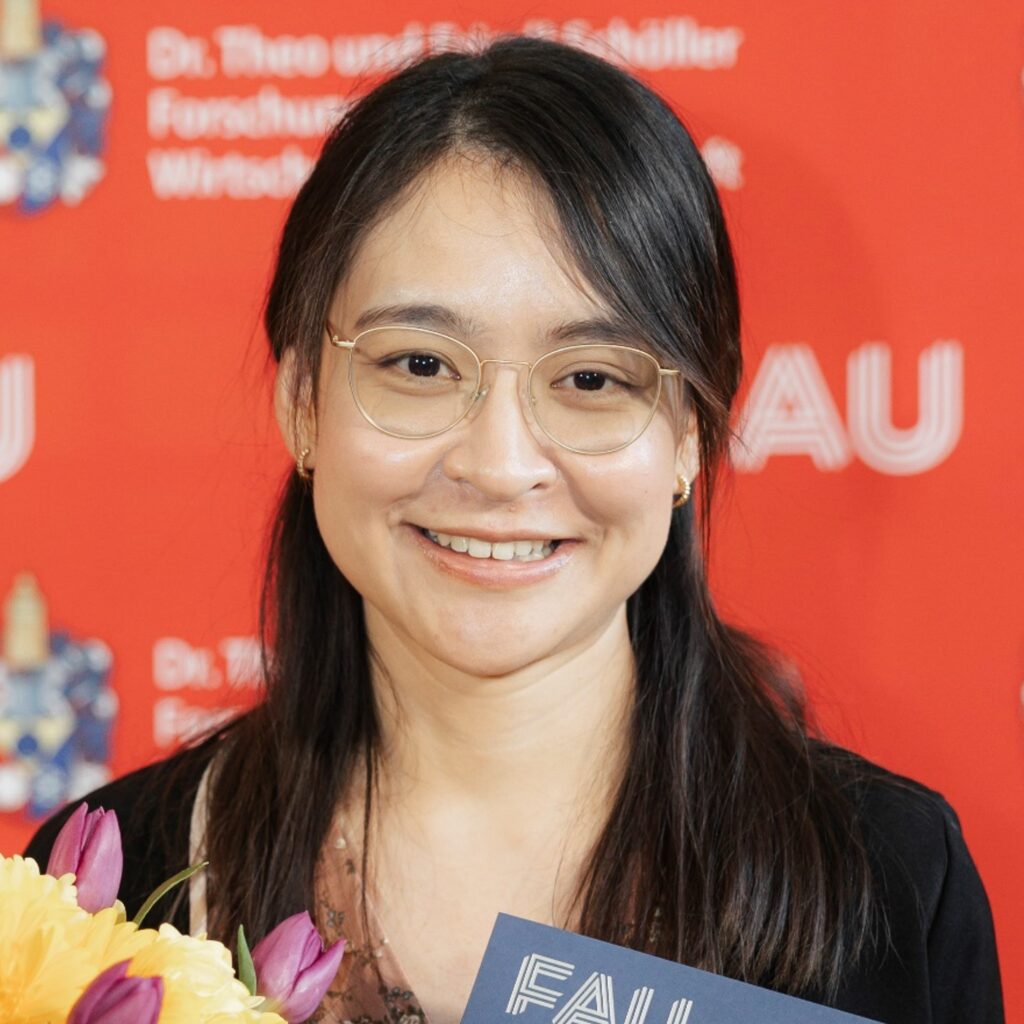
Dr. Aksornchan Chaianong (Fellow)
Aksornchan Chaianong is a Postdoctoral researcher at the Chair for Sustainability Transition Policy at FAU Erlangen-Nürnberg. She applies an interdisciplinary knowledge of technology, economics, and policy to drive her research on promoting the clean energy transition. Her research primarily employs quantitative methods, focusing on climate policy and target analysis. Before joining the FAU Erlangen-Nürnberg, she was a Research Associate at the Center for Energy and the Environment, Zurich University of Applied Sciences in Switzerland (ZHAW). She holds a PhD in Energy Technology from the Joint Graduate School of Energy and Environment in Thailand, and a master’s degree in Energy and Earth Resources from the University of Texas at Austin.
From Targets to Actions: The Climate Policy Nexus
Ratcheting up climate ambitions is key to meeting Paris Agreement goals. Scholars have studied policy prioritization and sequencing. However, the process/function behind targets and policies is complex. While renewable energy (RE), energy efficiency (EE), and climate targets and policies are crucial for driving climate action, they have often been studied separately.
The research project explores interactions between RE, EE, and climate targets, policies, and performance, examining causal links and sequencing within and across fields across diverse countries, including understudied ones. Findings will improve understanding of target-setting, inform policy sequencing, and provide insights for achieving climate goals.
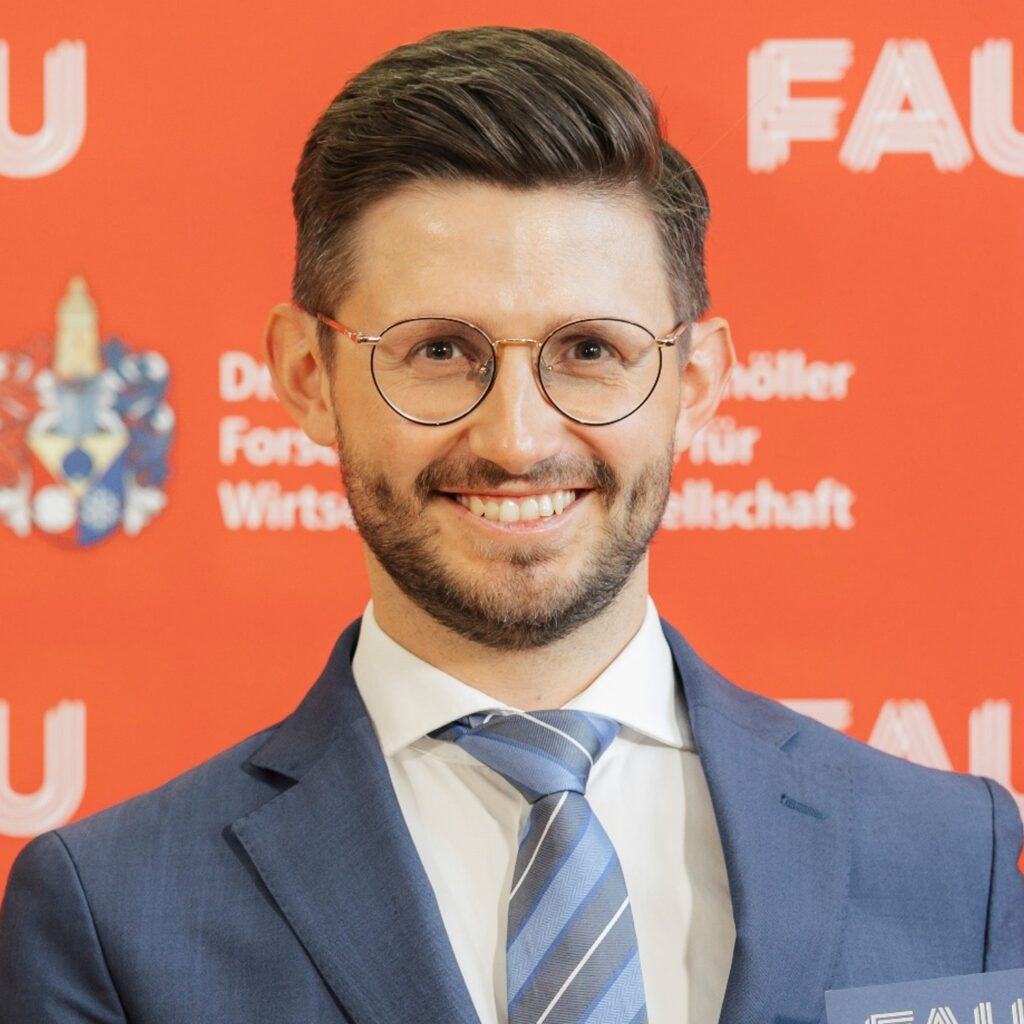
Dr. Simon Horn (Fellow)
Simon Horn, Maître en droit (Rennes) studied Franco-German law from 2013 to 2020 at the FAU Erlangen-Nürnberg (First State Examination 2020) and the Université de Rennes 1 (Licence en droit 2016, Maîtrise en droit européen 2017, Master en droit européen 2020). He then worked as a research assistant at FAU Erlangen-Nürnberg, where he received his doctorate in 2022 with a dissertation in the field of private international law, supervised by Professor Jochen Hoffmann. Since 2021, he has been working at the Max Planck Institute for Comparative and International Private Law in Hamburg, initially as a research associate and since 2024 as a senior research fellow. His research focuses on civil law, commercial, corporate, and capital markets law, private international law, antitrust, and comparative law.
Forecasts in Corporate Law
Forecasts are a pervasive phenomenon in corporate law: numerous provisions require enterprises, companies and their management to make forward-looking statements or decisions. Forecasts therefore pose a challenge for corporate law that has so far not been comprehensively addressed.
In the research project, insights from economics will be used to shed light on the effectiveness, limitations, and behavioral effects of forecasts in corporate law. In addition, a comparative law perspective will be adopted in order to tap into foreign experience with regard to the management of forecasting problems under corporate law. The aim is to develop an economically sound and appropriate regulatory framework for forecasts in German corporate law.
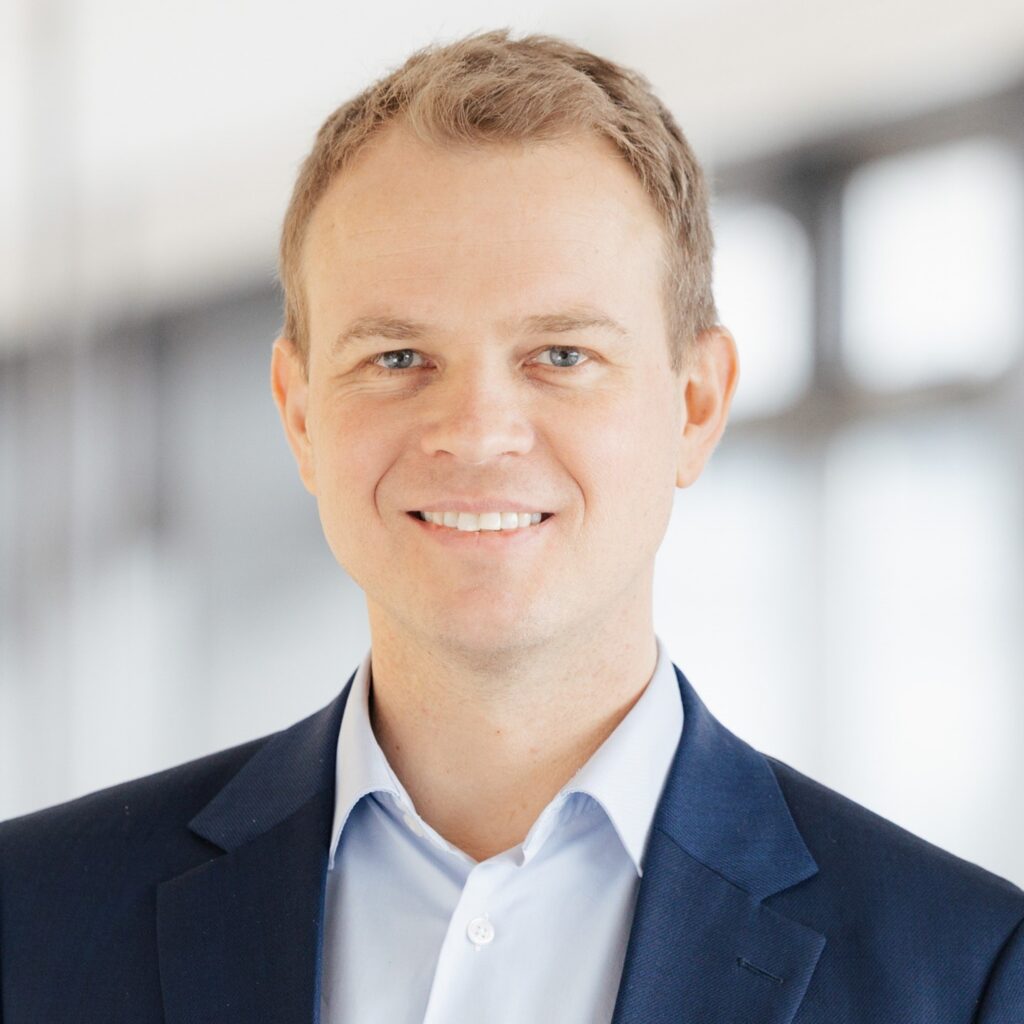
Dr. Christoph Küffner (Fellow)
Christoph Küffner studied Business Administration at Otto Friedrich University Bamberg from 2006 to 2012 (Diplom-Kaufmann) with a focus on Production Management and Logistics, Human Resources Management and Organization as well as Corporate Management and Controlling. After completing his studies, he worked in different supply chain functions until early 2020. Important milestones here were activities in logistics services and at a well-known FMCG manufacturer. From 2015 to 2019, he completed a part-time MBA program in Logistics Management and Consulting. In February 2020, he began his work as a research assistant at the Chair of Supply Chain Management at FAU Erlangen-Nürnberg and successfully completed his dissertation in January 2023. Following his time as a research assistant, he continues his work as a post-doctoral researcher.
Digital Colleagues in Supply Chain Management: Humans, Artificial Intelligence, and Smart Systems in Integrative Dialogue – Investigating Trust, Ethical Requirements, and Organizational Embedding
Digitalization and the use of Artificial Intelligence (AI) are fundamentally transforming Supply Chain Management. Companies are increasingly integrating AI-based systems, referred to as “digital colleagues” in this research project, which go beyond simple automation and act as interactive partners in complex tasks. While the technical advantages are already well-researched, there are still research gaps regarding the social and organizational impacts. Therefore, the research project investigates trust, ethical requirements, and integration processes of digital colleagues. Through qualitative, quantitative, and foresight studies, targeted recommendations will be developed to promote acceptance and trust.

Prof. Dr. Mario Liebensteiner (Fellow)
Mario Liebensteiner is Assistant Professor of Economics, especially Energy Markets and Energy Systems Analysis, at FAU Erlangen-Nuremberg. His research focuses on the analysis and regulation of energy markets and environmental policy. Previously, he worked as a praedoc and respectively postdoc research associate at TU Kaiserslautern and WU Vienna. He holds a doctoral degree in economics from WU Vienna and studied economics at JKU Linz and City University of Hong Kong. He is a member of the expert committee “Energy Systems of the Future” (ESYS) of the German Science Academies.
The Optimal Investment Path to Net Zero vs. The Economic Reality of Distorted Signals from State Interventions
The transition to a climate-neutral energy system is technically feasible but economically challenging due to market distortions from state interventions. The research project evaluates the feasibility of private investments in flexible energy technologies under different policy scenarios using an ex-ante capacity expansion model for Germany. By comparing optimal investments with market-driven incentives, the study identifies risks to long-term supply adequacy and assesses whether policy interventions, such as subsidies, are necessary. The findings offer insights into balancing market efficiency with policy-driven decarbonization.
